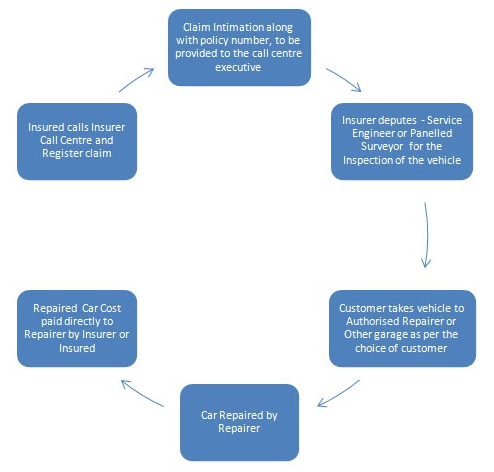Mental health care is just as important as physical health care—and it’s finally being recognized as such by health insurance providers. From therapy and counseling to medications and psychiatric treatment, mental health services are essential for millions of people. However, navigating health insurance plans to get the mental health coverage you need can still be confusing and frustrating.
This article provides a clear guide to managing mental health coverage under health insurance plans, including how to understand your benefits, what services are covered, how to avoid unexpected costs, and what to do if coverage falls short.
Why Mental Health Coverage Matters
Mental health conditions are common. According to the National Institute of Mental Health (NIMH), nearly 1 in 5 adults in the U.S. lives with a mental illness. Conditions such as depression, anxiety, PTSD, bipolar disorder, and others often require long-term or ongoing care—including therapy, medication, and sometimes hospitalization.
Without insurance, mental health care can be expensive and out of reach for many. Fortunately, most modern insurance plans offer some level of coverage for mental health, but the quality and scope of that coverage can vary significantly.
Legal Protections for Mental Health Coverage
Thanks to federal laws, mental health care is no longer considered “optional” by most health insurers.
1. The Mental Health Parity and Addiction Equity Act (MHPAEA)
This 2008 law requires that mental health and substance use disorder (SUD) benefits be treated equally to medical and surgical benefits. For example:
- If your plan offers unlimited doctor visits, it must offer the same for therapy.
- Co-pays, deductibles, and preauthorization rules must be similar.
2. Affordable Care Act (ACA)
The ACA designated mental health and substance use disorder services as essential health benefits. This means:
- Marketplace plans and Medicaid expansion programs must cover mental health care.
- Pre-existing mental health conditions cannot be used to deny you coverage.
- Coverage must include therapy, inpatient care, and medications.
What Mental Health Services Are Typically Covered?
While each plan is different, most ACA-compliant and employer-sponsored plans include the following types of services:
1. Therapy and Counseling
- Individual, group, or family therapy
- Cognitive Behavioral Therapy (CBT), Dialectical Behavior Therapy (DBT), and others
- Often provided by licensed psychologists, social workers, or counselors
2. Psychiatric Services
- Psychiatrist visits for evaluation and medication management
- Inpatient or outpatient psychiatric treatment
3. Medication
- Antidepressants, antianxiety medications, mood stabilizers, antipsychotics
- Coverage may require prior authorization or step therapy
4. Crisis Services
- Emergency mental health treatment
- Suicide prevention hotlines and mobile crisis units
- Short-term hospitalization
5. Substance Use Treatment
- Detoxification, inpatient rehab, outpatient counseling
- Covered similarly to other mental health services
How to Understand Your Plan’s Mental Health Benefits
It’s crucial to review your plan’s Summary of Benefits and Coverage (SBC) and Evidence of Coverage (EOC) documents. Key things to look for:
1. In-Network vs. Out-of-Network
- In-network providers have lower costs
- Out-of-network mental health care may be partially covered or not covered at all
2. Co-Pays and Deductibles
- Some plans have higher co-pays for therapy sessions
- You may need to meet a deductible before coverage kicks in
3. Number of Visits
- Some plans limit therapy sessions (e.g., 20 per year), though parity laws discourage this
4. Preauthorization Requirements
- Certain services, like inpatient care or psychiatric evaluations, may need prior approval
5. Teletherapy Coverage
- Especially post-COVID, many plans now include teletherapy or online counseling
Common Challenges—and How to Overcome Them
Despite improved laws and coverage, mental health care still presents unique obstacles:
1. Finding a Provider
Mental health providers may be:
- Fully booked
- Out-of-network
- Not accepting new patients
Solution:
Use your insurer’s provider directory and filter for in-network therapists or psychiatrists. Consider telehealth options or clinics with sliding-scale fees.
2. Denied Claims
Insurers may deny coverage for:
- “Non-medically necessary” treatment
- Out-of-network providers
- Lack of preauthorization
Solution:
Appeal the denial with documentation from your provider explaining the medical necessity. You have the legal right to appeal under both state and federal laws.
3. High Costs Despite Insurance
Even with insurance, you might face:
- High deductibles
- Limited coverage for preferred medications
- Co-pays that add up over time
Solution:
Ask your provider about generic alternatives, manufacturer coupons, or consider health savings accounts (HSAs) to offset costs.
Medicaid and Medicare Mental Health Coverage
If you qualify for government insurance, here’s what to expect:
Medicaid
- Covers therapy, medication, and inpatient care
- Often includes substance use treatment
- Some states offer expanded behavioral health services
Medicare
- Part A: Covers inpatient psychiatric care
- Part B: Covers outpatient therapy and psychiatric visits
- Part D: Covers mental health medications
Note: Some services may require copayments or coinsurance under Medicare.
Affordable Alternatives for Uninsured or Underinsured Patients
If you don’t have insurance or your plan doesn’t cover what you need, consider:
1. Community Mental Health Centers
- Offer services on a sliding scale based on income
2. Employee Assistance Programs (EAPs)
- Free, short-term counseling through your workplace
3. Nonprofits and Support Groups
- Many organizations offer free group support or referrals
4. Online Therapy Platforms
- Services like BetterHelp or Talkspace may offer lower-cost access, though they may not always be covered by insurance
Tips for Managing Mental Health Coverage Successfully
- Keep Records: Track appointments, bills, EOBs, and correspondence with your insurer.
- Verify Provider Credentials: Ensure your therapist or psychiatrist is licensed and in-network.
- Check for Referrals: Some plans require a primary care referral before seeing a specialist.
- Understand Medication Tiers: Know which drugs are on your plan’s formulary and their cost tier.
- Use Preventive Care: Annual screenings for depression and anxiety are often covered 100% under ACA plans.
Final Thoughts
Managing mental health coverage under a health insurance plan doesn’t have to be daunting. With the right knowledge and tools, you can maximize your benefits, avoid unnecessary costs, and focus on what truly matters: your well-being.
The first step is understanding your rights and your plan’s specifics. Then, take proactive steps—whether it’s finding the right provider, appealing denials, or accessing affordable alternatives—to get the care you need.
Mental health care is not a luxury. It’s a necessity. And with the protections and options available today, it’s more accessible than ever—if you know where to look and how to advocate for yourself.







